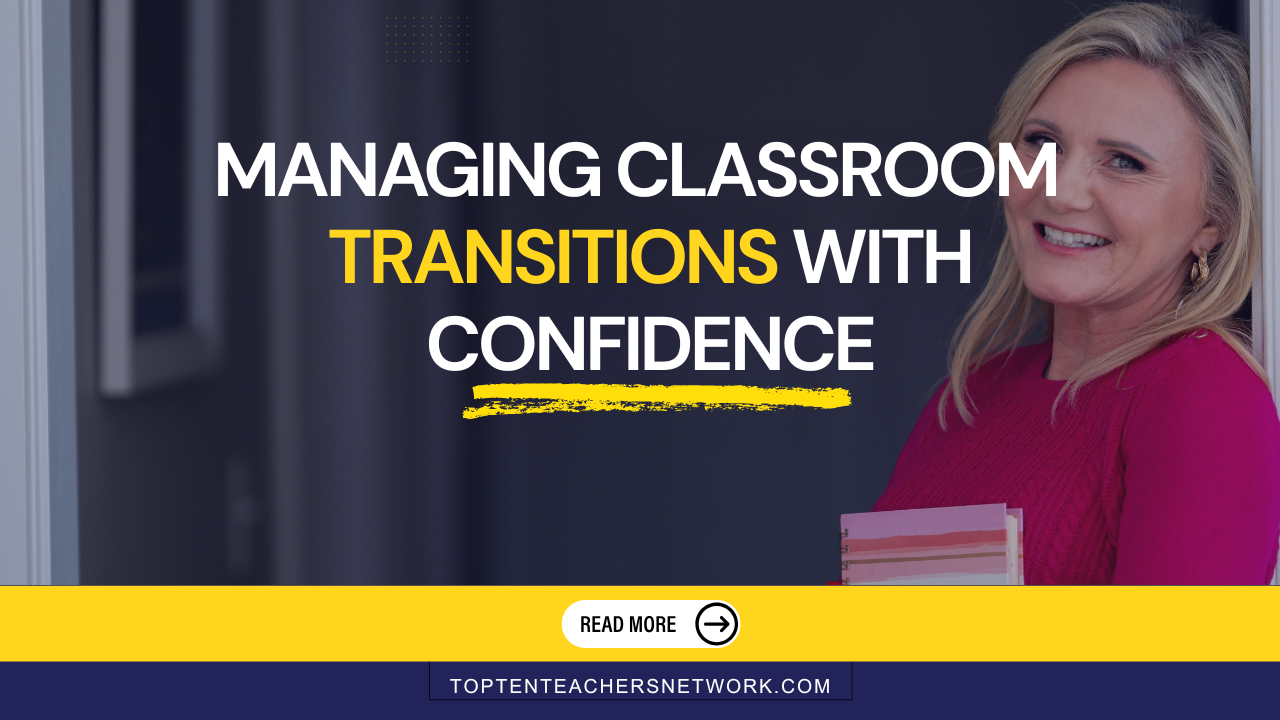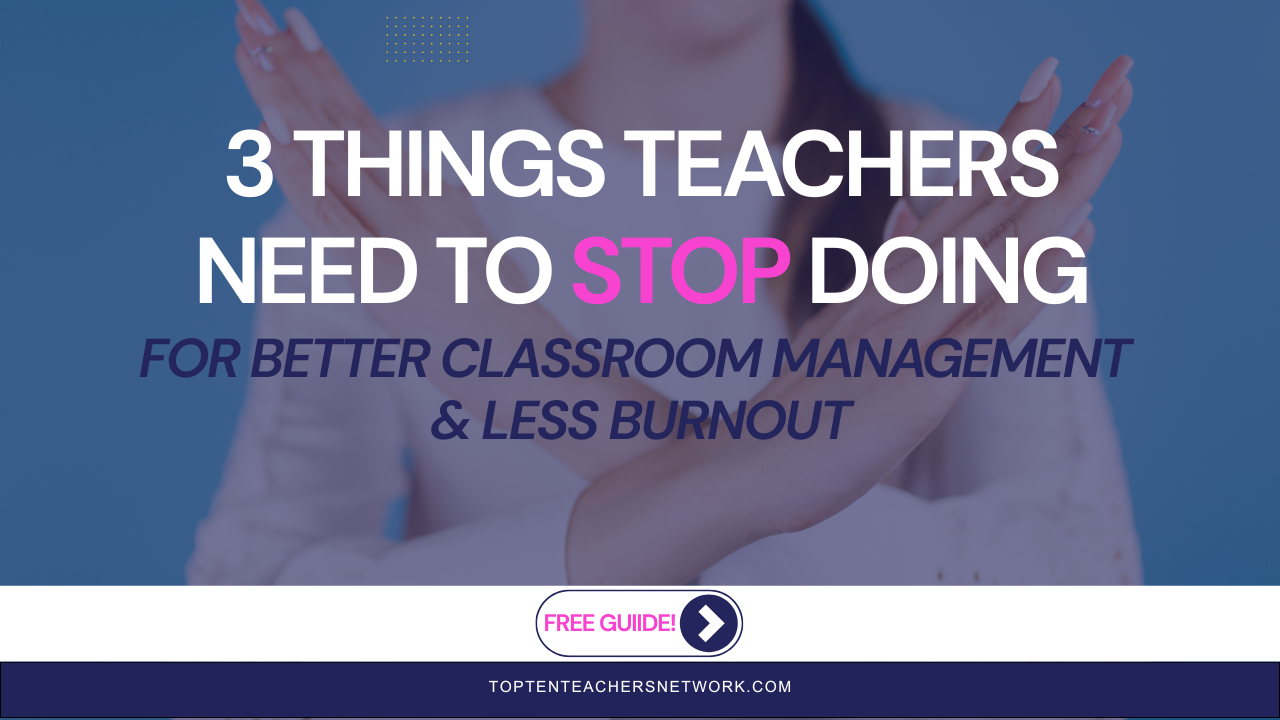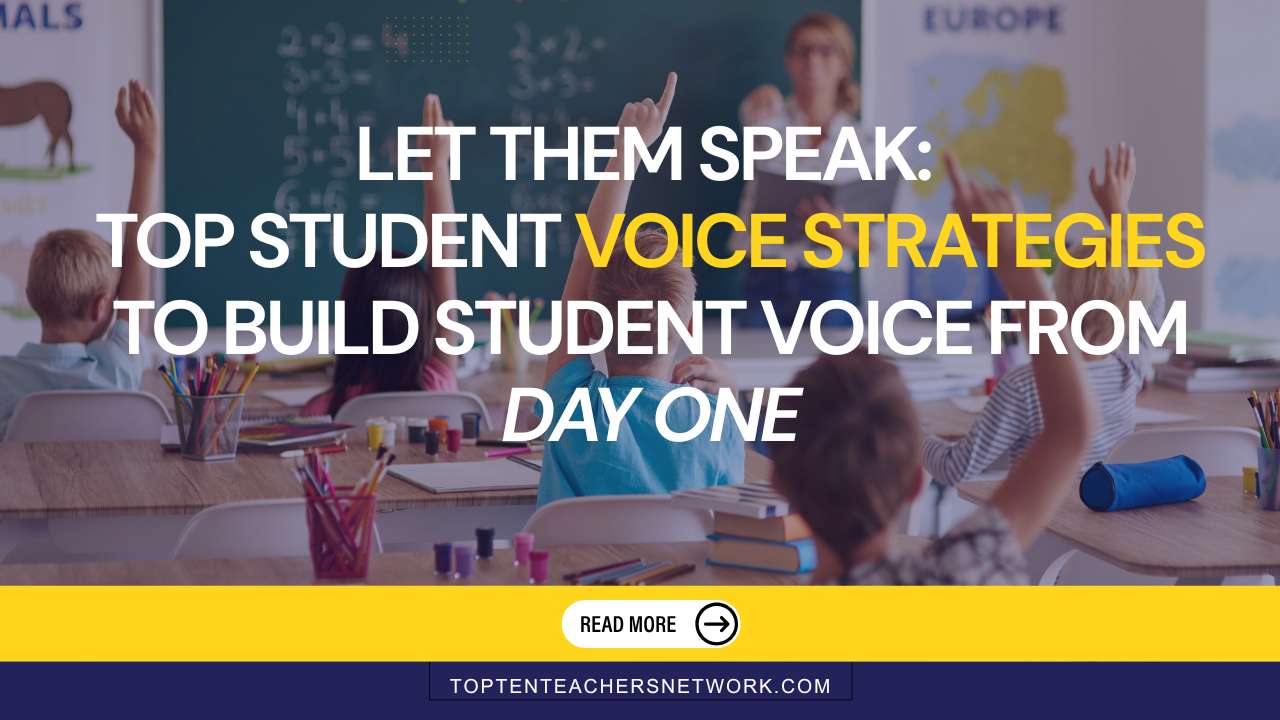Managing Classroom Transitions with Confidence

The Not-So-Secret Secret to a Peaceful Classroom
Let’s be real: it’s not the lessons that wear you down—it’s the classroom transitions. In this post, we’ll break down the most effective classroom transitions strategies that top educators use to bring calm, clarity, and consistency to their day.
The pencils that mysteriously vanish. The wandering. The volume that rivals a Beyoncé concert.
This week, we’re tackling the “in-between” moments that can make or break your day—and your mood.
Key Takeaway: When students know what to do between activities, you’ll have more time for actual teaching (and maybe even a sip of your coffee while it’s still hot).

1️⃣ Teach Transitions Like You Teach Math
One of the biggest issues teachers face with transitions isn’t the students—it’s inconsistency.
By the end of the lesson, the teacher is drained. “See? They just can’t do it,” they say. But here’s the truth: the kids can do it—when they’re taught how.
✨ Transitions don’t just “happen.” They must be taught, modeled, and practiced.
Start Day 1 with:
-
A visual timer
-
Clear modeling
-
Debrief routines
![]() Top TEN Pro Tip: Narrate like a sportscaster:
Top TEN Pro Tip: Narrate like a sportscaster:
“I see three students already on the rug, silent and ready for learning. That’s hustle!”
2️⃣ Brain Breaks Aren’t Optional. They’re Oxygen.
Your classroom isn’t just a place to "get through" the day. Every moment is a chance to shape how students feel about school—and themselves.
So ask yourself: Are your transitions purposeful resets?
Try this:
-
🎶 Dance breaks with music that signals when to sit
-
🌀 “2 desks, 2 chairs, 2 walls” challenge + share a thought with a partner
![]() TopTEN Pro Tip: The best brain breaks double as smooth transitions.
TopTEN Pro Tip: The best brain breaks double as smooth transitions.
Need support building this structure? Explore The Confident Teacher—a coaching experience to help you map out routines, breaks, and systems that stick.

3️⃣ Be the Calm in the Chaos
Transitions don’t just challenge students—they test teachers, too. When noise, movement, or confusion spikes, your ability to stay centered becomes the anchor for your class. The more calm, clear, and consistent you are, the more students mirror that energy. This section helps you lead transitions with clarity and confidence—without losing your cool.
Set the bar with:
-
100% readiness
-
Clear expectations
-
Student-led roles (e.g., hallway monitors, tech crew)
Encourage ownership with earned group rewards:
“We walked to the gym safely—5 extra minutes of recess earned!”
![]() TopTEN Pro Tip: Skip charts and clips. Use language that connects, not controls.
TopTEN Pro Tip: Skip charts and clips. Use language that connects, not controls.

🗣️ Power Phrase to Try:
“We don’t rush—we reset. Let’s transition like pros.”
You can either chase behavior—or train transitions and reclaim your peace.
Want help getting started? The Confident Teacher walks with you to create classroom systems that work.
Also, small language shifts create big behavior wins—explore How to Talk to Your Students to Build Positive Relationships.
🚀 Need a Jumpstart?
The First 3 Days of School Mini-Course is your go-to guide to teach:
-
Transitions with intention
-
Brain breaks that work
-
Routines that run themselves
👉 Click here to start prepping now so you can actually relax later!
💡 About the Teachers Empowerment Network
At Teachers Empowerment Network, we believe great teaching starts with a plan, strong community, and the confidence to lead like a pro.
You don’t need another worksheet. You need:
-
A real plan
-
A little strategy
-
A whole lot of heart 💛
✨ Ready to become a TopTEN Teacher? Let’s do this—together.






